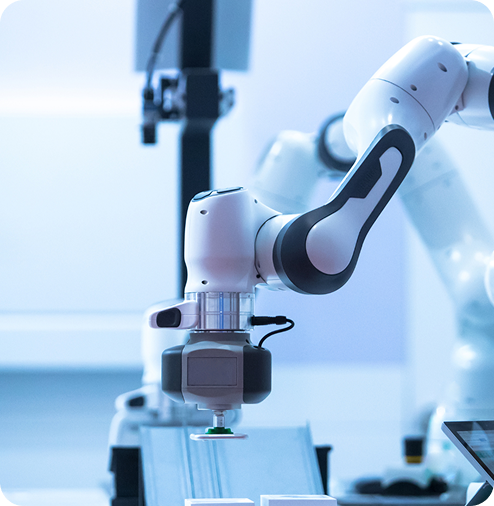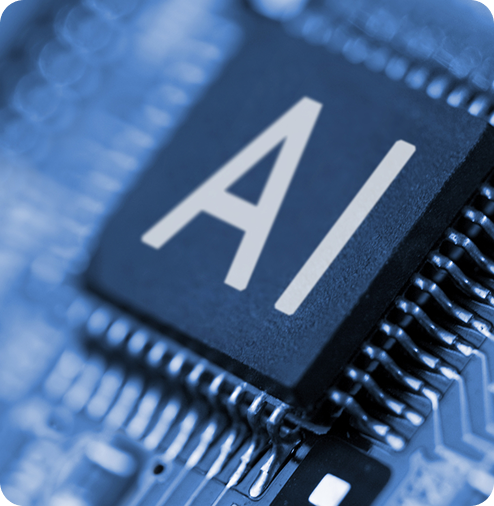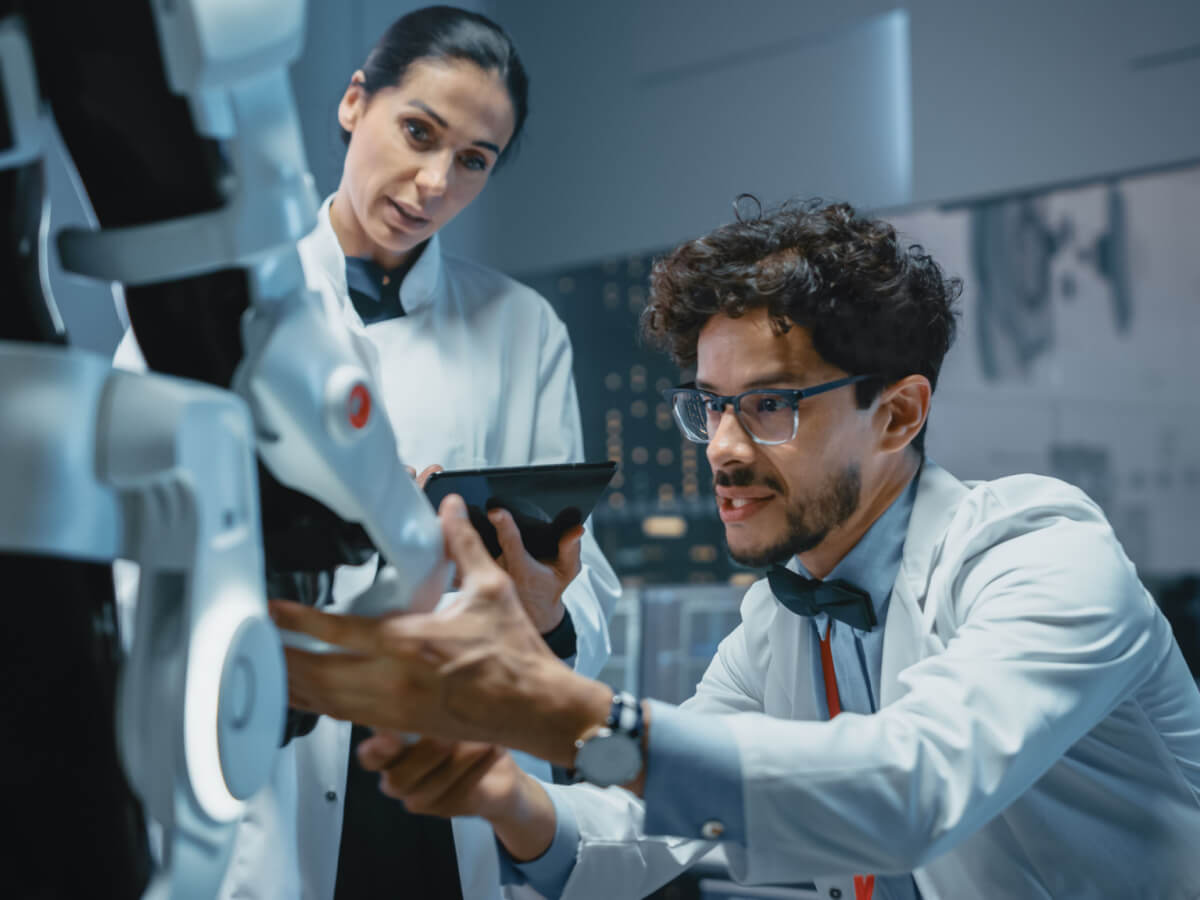Robotics
Scaling Robotics AI. Precision, Adaptability, and Trust.

Key challenges
Robotics companies must build AI that performs reliably in dynamic, unpredictable real-world environments. Common challenges include:
Noisy, unstructured sensor data
Robotics systems rely on multimodal inputs (vision, audio, lidar) that are difficult to process and label accurately.
Real-time decision-making
Models must make fast, high-stakes decisions across varied environments and tasks
Edge deployment constraints
Robotics AI must be optimized for hardware constraints and latency.
Safety and compliance
Poor AI behavior can cause harm or failure in high-risk physical spaces.

Key trends
Robotics innovators are increasingly leveraging AI to improve autonomy, adaptability, and operational efficiency:
Perception & localization
AI models power object recognition, SLAM (Simultaneous Localization and Mapping, and dynamic obstacle detection.
Task automation
Robots use AI to learn and perform complex tasks across warehouses, factories, and homes.
Human-robot interaction
Natural language and behavior models enable safer, more intuitive interfaces.
Operational oversight
Continuous monitoring and testing ensure that AI models perform safely over time.

Succeed with CloudFactory
CloudFactory helps robotics companies move from experimentation to production-scale AI by making sensor data usable, tuning models for task-specific performance, and providing oversight for safety and accuracy:
AI Consulting
We help identify AI use cases across perception, grasping, and interaction, then define pathways to scale.
Data Engine
We clean, structure, and annotate complex sensor streams, including video, lidar, and telemetry.
Training Engine
We fine-tune perception and control models for varied environments and robot types.
Inference Engine
We provide exception handling and real-time QA to monitor model behavior and flag risks.
AI Engine
We operationalize robotics AI systems—from pilot to production—ensuring consistent, trustworthy outcomes.
5 Ways AI is Making Drone Delivery Possible
There are five key areas where adding autonomy to drones will enable you to address regulatory hurdles, scale delivery operations, and conduct safe deliveries and landings.

4 Ways Perception and Data Processing Are Improving Drone Inspection
Perception and data processing enhances drone inspections by powering automated navigation, digital twin creation, post-processing data, and real-time data processing.

Client Story: AMP Robotics
Recycling tech company turned to CloudFactory when its growth outpaced internal capacity to annotate quality data.

Client Story: Robotics Company
A robotics company specializing in last mile food and grocery delivery robots equipped with LiDAR sensors and cameras, needed assistance deploying and scaling their next gen AI models. Their iterative model development strategy required a continuous flow of high-quality annotations of increasingly complex dataset to identify objects and trajectories.
At Charles River Analytics, we believe in pushing the boundaries of what's possible with AI and machine learning. The synergy with CloudFactory has not only accelerated our projects but has fundamentally enhanced the value of our intellectual property and enabled us to set new standards in the domain of marine mammal detection.
Ross Eaton
Principal Scientist and Director of Marine Systems, Charles River Analytics

Ready to get started?
In high-stakes environments, AI can’t just be good—it must be right.
Let’s build AI you can trust.
.png?width=1563&height=1563&name=Untitled%20design%20(38).png)




.png?width=1563&height=1563&name=Untitled%20design%20(30).png)



.png?width=1563&height=1563&name=Untitled%20design%20(33).png)


.png?width=1563&height=1563&name=Untitled%20design%20(34).png)










